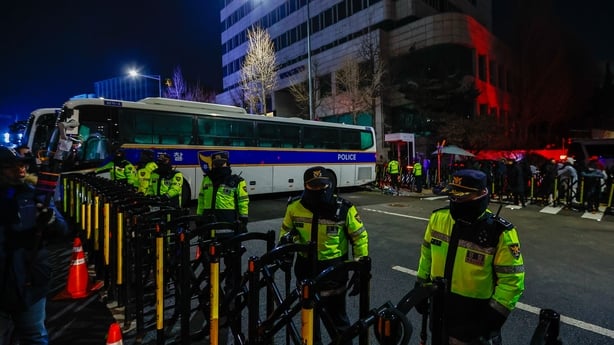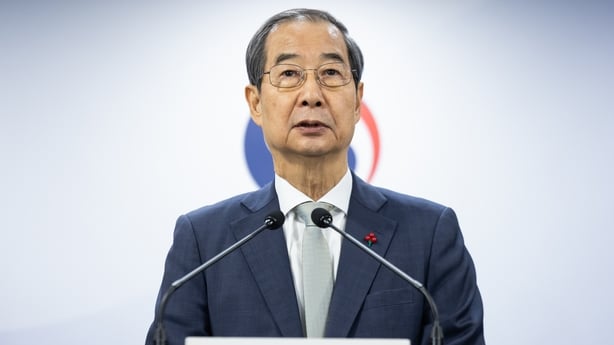South Korea's impeached President Yoon Suk Yeol appeared at a Seoul court for the first hearing of his criminal trial over insurrection charges, during which his lawyers demanded his release from jail.
The ousted South Korean leader is the country's first sitting head of state to stand trial in a criminal case as hearings open over his bid to impose martial law.
TV footage aired by local broadcasters showed justice ministry vehicles leaving the Seoul Detention Centre where Mr Yoon is being held before arriving at the court where lines of police buses were parked outside to ensure security.
The court heard a bid by Mr Yoon's lawyers to cancel his detention as they argued that the insurrection probe had been conducted in an illegal manner and that there was no risk of him trying to destroy evidence.

Prosecutors last month indicted the 64-year-old after accusing him of leading an insurrection with his short-lived imposition of martial law on 3 December.
He has been detained since his arrest last month on charges of insurrection, for which he could be sentenced to life in prison or face the death penalty.
The charges are unprecedented for a sitting South Korean president, and if convicted, he could face years in prison for his martial law decree, which sought to ban political and parliamentary activity, and control the media.
His move set off a wave of political upheaval in Asia's fourth-largest economy and a top US ally, with the prime minister also impeached and suspended from power and a number of top military officials indicted for their roles in the alleged insurrection.
Prosecutors called for quick proceedings considering the case's "gravity", but Mr Yoon's lawyers said they needed more time to review records.
Mr Yoon had "no intention to paralyse the country," one of hislawyers told the court, adding that his martial law declaration was to inform the public of the "legislative dictatorship of the huge opposition party".
A judge said the court would hold the next hearing on the criminal case on 24 March.

Mr Yoon is also facing a parallel impeachment trial conducted by the Constitutional Court which has entered its final phase.
His tenth hearing in that case is scheduled for 3pm local time, just hours after he takes the stand in his criminal trial.
The top court will hear witnesses testify including Prime Minister Han Duck-soo later though it is unclear if Mr Yoon will also attend the impeachment trial hearing.
The head of South Korea's National Police Agency Cho Ji-ho, also on trial on insurrection charges related to the martial law decree, has also been called as a witness.
The Constitutional Court is reviewing parliament's impeachment of Mr Yoon on 14 December and will decide whether to remove him from office permanently or reinstate him.
Mr Yoon and his lawyers have argued at the hearings that he never intended to fully impose martial law but had only meant the measures as a warning to break a political deadlock.
This process could take up to a fortnight or longer.
Previously impeached presidents Park Geun-hye and Roh Moo-hyun had to wait 11 and 14 days, respectively, to learn the outcome of the proceedings.
If Mr Yoon is removed, a new presidential election must be held within 60 days.

